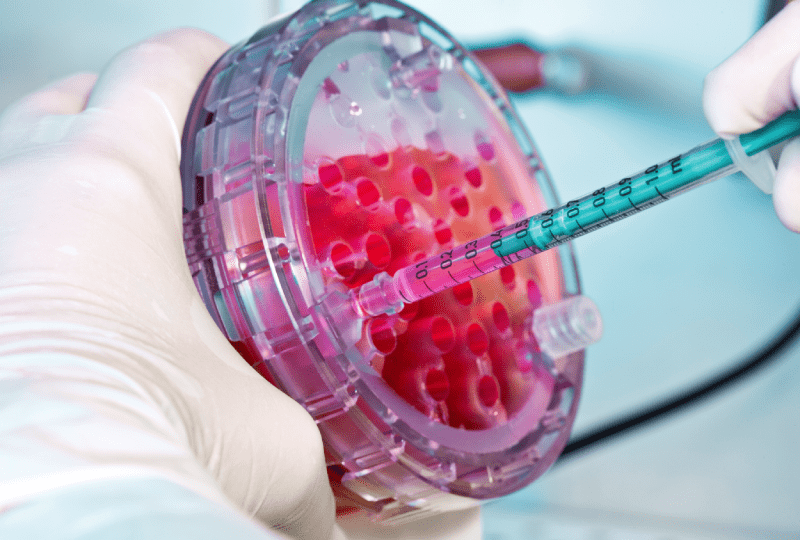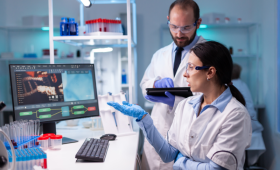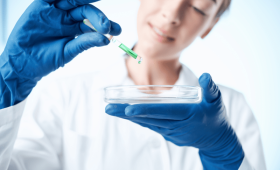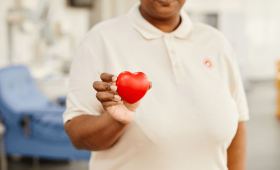Stem cell therapy is one of the most exciting and rapidly developing fields in medicine. These cells, which have the power to repair, regenerate, and heal damaged tissues in the body, carry the potential to cure many health problems, from chronic illnesses to degenerative conditions. These groundbreaking treatments, often offered at exorbitant prices in Western countries, are accessible in Turkey with both high-quality standards and a remarkable cost advantage. For international patients seeking to access this transformative treatment safely and comfortably, Cure Holiday is a reliable partner that manages the entire process from A to Z.
What is Stem Cell Therapy and How Does it Work?
Stem cells are ‘master’ cells in our body with the ability to differentiate into all other cell types and renew themselves indefinitely. Stem Cell Therapy (SCT) is the process of transplanting these cells into a patient to repair or replace damaged or non-functional tissues and organs. Essentially, they act as a biological support to accelerate and strengthen the body’s natural healing mechanism. The treatment is based on the principle of delivering stem cells, obtained from the patient’s own body or a donor, to the affected area via injection, intravenous route, or surgical means.
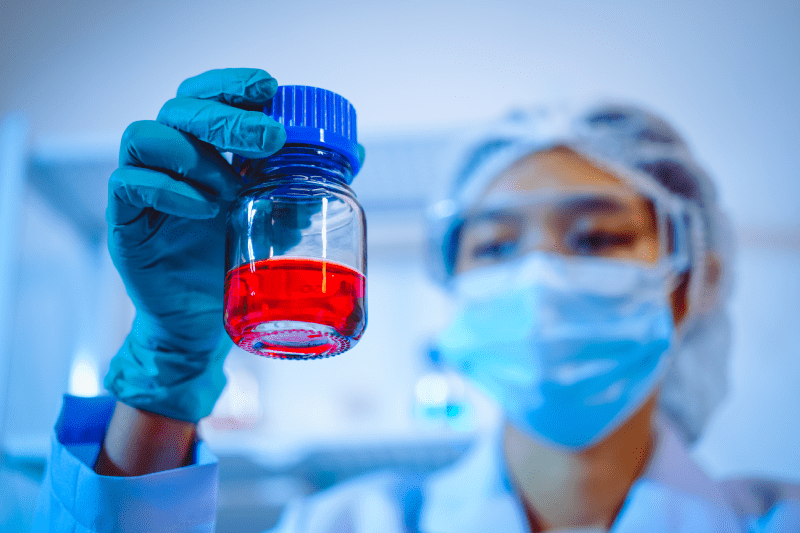
Types of Stem Cells: Autologous, Allogeneic, and iPS Cells
Stem cells are classified according to their source:
- Autologous Stem Cells: Obtained from the patient’s own body (usually bone marrow or adipose tissue). The risk of immune system rejection is zero.
- Allogeneic Stem Cells: Taken from another healthy donor. Generally used for immune system diseases and blood cancers. Tissue matching is crucial.
- Mesenchymal Stem Cells (MSCs): Found in tissues such as fat, bone marrow, and umbilical cord. Due to their immunomodulatory properties, they are widely used in autoimmune diseases and regenerative medicine.
- Induced Pluripotent Stem Cells (iPS): Adult cells are reprogrammed in a laboratory setting to resemble embryonic stem cells.
What Do Stem Cells Do in the Body?
The primary function of stem cells in the body is regeneration. They produce new cells to replace damaged or dead ones. They also support healing by reducing inflammation in the affected area and regulating the immune system. Thanks to these properties, stem cells play a critical role in a wide variety of biological processes such as chronic wound healing, bone and cartilage repair, protection of nerve cells, and rebalancing the immune system.
For Which Diseases Can Stem Cell Therapy Be Applied?
Stem cell therapy potentially offers hope in the treatment of many diseases. The areas with the most clinical studies and applications today include:
- Orthopedic Diseases: Osteoarthritis (joint calcification), meniscus, and cartilage damage.
- Neurological Diseases: Spinal cord injuries, Multiple Sclerosis (MS), Parkinson’s, and Cerebral Palsy.
- Cardiovascular Diseases: Heart failure and damage repair after a heart attack.
- Autoimmune Diseases: Crohn’s disease, Lupus.
- Eye Diseases: Macular degeneration and corneal damage.
- Blood Diseases: Leukemia and lymphoma (as bone marrow transplantation).
Does Stem Cell Therapy Work? Scientific Evidence
The efficacy of stem cell therapy depends on the disease, the type of cell used, and the application method. Its effect is proven and widely applied, especially in the orthopedic field (cartilage repair) and the hematological field (bone marrow transplantation). In more complex areas such as neurological and autoimmune diseases, clinical trials are ongoing and yielding promising results. Before starting treatment, it is very important for patients to research whether the method applied by the chosen clinic is supported by scientific literature and current guidelines.
Stem Cells in Orthopedic Problems: Cartilage and Joint Diseases
Mesenchymal Stem Cells (MSCs) are a popular option for treating osteoarthritis (calcification) and cartilage damage. MSCs reduce inflammation, alleviate pain, and stimulate the regeneration of cartilage tissue when injected into the knee, hip, or shoulder joints. This treatment can delay or eliminate the need for surgery, especially in patients with early or mid-stage calcification. Autologous (patient’s own) stem cells derived from adipose tissue are frequently used in this field.
Potential Applications in Neurological Diseases
Due to their ability to regenerate nerve cells, stem cells offer a light of hope for neurological conditions such as Multiple Sclerosis (MS), Parkinson’s, Alzheimer’s, ALS, and post-stroke damage. In MS, stem cells aim to slow the progression of the disease by re-regulating the immune system. In spinal cord injuries, the goal is to help improve motor function by promoting the growth and repair of nerve cells in the damaged area.
The Role of Stem Cells in the Treatment of Autoimmune Diseases
Autoimmune diseases (where the body attacks its own tissues) can be treated thanks to the immunomodulatory property of stem cells. Stem cells can suppress faulty immune cells and rebalance T-cells, potentially reducing the activity of conditions like Lupus, Rheumatoid Arthritis, or Crohn’s disease. This approach offers significant potential, especially in severe cases unresponsive to current treatments.
Stem Cell Therapy Procedure (Procedure)
The stem cell therapy process involves several steps:
- Cell Collection: Stem cells are harvested from the patient’s bone marrow or adipose tissue.
- Laboratory Processing: The collected cells are separated and multiplied in a laboratory (Clean Room) environment.
- Application: The prepared cells are re-introduced to the patient, either through direct injection into the damaged area (joint, spinal canal) or intravenously, depending on the type of disease. This procedure may take a few hours, depending on the patient’s condition, and is generally minimally invasive.
How Long is the Recovery Time After Treatment?
Stem cell therapy is generally performed on an outpatient basis (except for bone marrow transplantation), and patients can usually return to their daily activities on the same day or the day after. However, the actual “healing” period, meaning the time it takes for the transplanted cells to start functioning, can range from a few weeks to several months. While orthopedic treatments may require a few weeks of physical therapy, neurological effects may take months to become visible.
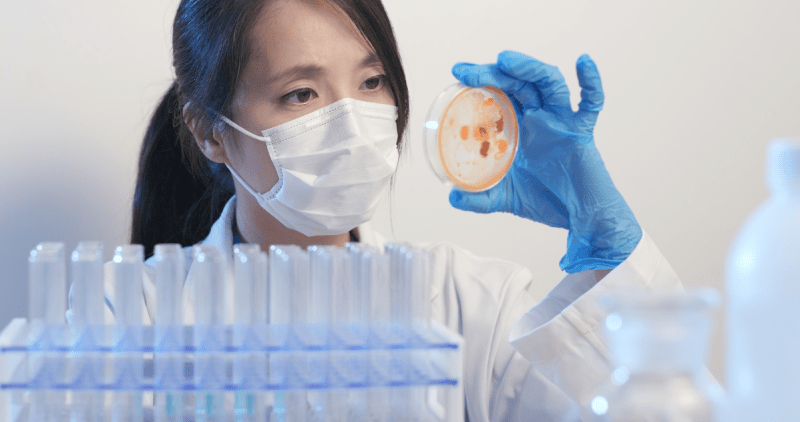
What are the Risks and Side Effects of Stem Cell Therapy?
Although stem cell therapy is generally considered safe, some risks exist. The greatest risk in autologous (own cell) treatments is infection or bleeding during transplantation. The most serious risk in allogeneic (donor) treatments can be the transplanted cells attacking the patient’s body (Graft-versus-Host Disease). Other side effects may include mild fever, fatigue, or pain/swelling at the application site. Experienced clinics apply strict protocols to minimize these risks.
Who is Not Suitable for Treatment?
Stem cell therapy may not be suitable for patients with certain chronic infections, active cancers, or blood clotting disorders. Additionally, patients undergoing chemotherapy or using immunosuppressive drugs should consult their doctor before starting treatment. The patient’s suitability is determined based on a comprehensive medical history evaluation and laboratory tests.
How is the Success Rate of Stem Cell Therapy Determined?
The success rate varies depending on the outcome targeted by the treatment. Success in orthopedics is measured by reduced pain and increased range of motion, while in neurological diseases, the alleviation of symptoms or slowing of disease progression is expected. Factors affecting success include the patient’s age, general health condition, stage of the disease, the quantity of cells used, and cell viability. Setting realistic expectations is important in this process.
Why is Turkey the Preferred Center for Stem Cell Therapy?
Turkey has rapidly become a global leader in stem cell and regenerative medicine. The reasons patients prefer Turkey are:
- Currency Advantage: Cost savings of up to 50-80% compared to Europe and America.
- Expertise: Experience of surgeons and laboratory experts due to the high volume of cases.
- Technology: Possession of the most modern “Clean Room” laboratories and equipment.
- Fast Access: No months-long waiting lists like in Europe.
- Comprehensive Service: All-in-one packages covering travel, accommodation, and post-treatment follow-up.
Accreditations of Stem Cell Centers in Turkey
Stem cell centers and private hospitals in Turkey hold prestigious accreditations like JCI (Joint Commission International), certifying their compliance with international standards. Stem cell laboratories are subjected to rigorous inspections by the Ministry of Health and operate in accordance with GMP (Good Manufacturing Practices) standards. This guarantees that patients receive high-quality and safe treatment.
The Expertise of Turkish Doctors in the Field of Stem Cells
Turkish doctors have received international training and increased their experience in regenerative medicine and orthopedics. Thanks to advanced laboratory facilities and high patient flow, they have worked on a large number of cases, specializing in rare and complex stem cell applications. Patients in Turkey can easily access specialists with high academic knowledge and practical experience.
European Prices: How Much Does Stem Cell Therapy Cost in Germany?
Stem cell therapy in Germany is quite expensive due to high labor costs, limited insurance coverage, and expensive laboratory operating costs. The cost of a simple intra-articular (autologous MSC) treatment ranges from 8,000 Euros to 15,000 Euros, while the cost of treatments for more complex, systemic diseases can easily exceed 30,000 Euros. These costs generally do not include accommodation, transfers, or long-term follow-up.
European Prices: Stem Cell Costs in the UK
Prices for stem cell therapy in private clinics in the UK (United Kingdom) are similar to Germany and often even higher. The cost of a simple autologous adipose-derived stem cell treatment can start from 10,000 Sterling and go up to 25,000 Sterling. Since the National Health System (NHS) does not cover aesthetic or experimental treatments, patients have to pay the entire cost themselves. All-inclusive packages in Turkey mean thousands of Sterling in savings for British patients.
European Prices: High Prices in France and Italy
Stem cell therapy prices are also high in Mediterranean countries like France and Italy. Average costs range between 10,000 Euros and 20,000 Euros. These high costs in Europe direct patients to Turkey to protect their budgets without compromising on quality service. Turkey, with its combination of high quality and low cost, is an ideal gateway for patients in Europe who have difficulty accessing these treatments.
The Economic Advantage of Stem Cell Therapy in Turkey
The affordability of stem cell therapy in Turkey does not mean quality is compromised. The main reason is the low value of the Turkish Lira against strong foreign currencies. Thanks to this currency advantage, international patients can receive a luxurious package, including surgery, accommodation, transfers, and comprehensive care, in Turkey for the price they would pay only for the surgery in Europe.
Key Factors Affecting Treatment Cost
Many factors determine the price of stem cell therapy:
- Type and Stage of the Disease: The complexity of the treatment.
- Cell Source: Adipose, bone marrow, or blood.
- Cell Quantity and Proliferation: A large number of cells and cells multiplied in the laboratory are more costly.
- Application Method: Intra-articular injection, intravenous route, or surgical procedure.
- Additional Treatments: Whether supportive treatments such as hyperbaric oxygen or PRP are included in the package.
Accommodation and Transfer Solutions During Treatment
The comfort of international patients during the treatment process is essential. Health tourism companies in Turkey and Cure Holiday offer accommodation options in high-standard hotels close to hospitals and laboratories. All transportation between the airport, hotel, and clinics is provided with VIP vehicles to minimize patient fatigue.
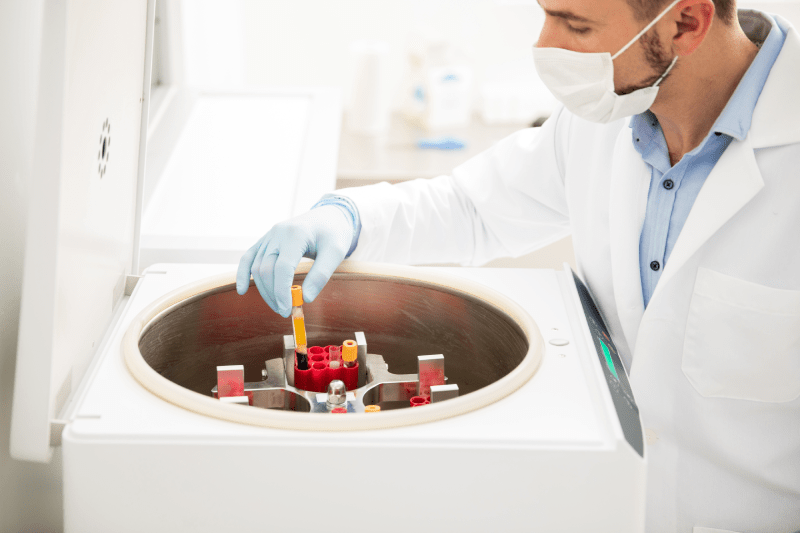
Speed and Access to Stem Cell Therapy in Turkey
While Europe has long ethics committee and waiting lists for experimental treatments and stem cell applications, Turkey manages these processes faster and more systematically. Patients can start their treatment shortly after the initial contact. This speed is vitally important, especially for patients with progressive diseases who do not want to lose time.
Interpreter Services and Support During the Treatment Process
Comprehensive support is provided to ensure foreign patients do not face a language barrier in Turkey. Professional interpreters speaking many languages, such as English, German, Arabic, and Russian, are available in hospitals and clinics. Cure Holiday assigns personal coordinators who facilitate all communication between the patients and their doctors.
How Do Legal Regulations and Ethical Rules Work in Turkey?
The Ministry of Health of the Republic of Turkey implements very strict legal regulations and ethical rules regarding stem cell research and applications. Stem cell treatments can only be performed in licensed centers and with the approval of the ethics committee. This audit mechanism plays a key role in ensuring patient safety and treatment transparency.
Tests to be Performed in Turkey Before Starting Treatment
Before starting stem cell therapy, comprehensive tests are performed to determine the patient’s general health status and suitability for treatment. These include detailed blood tests, infection screenings, immune system tests, and imaging (MRI, CT) to show the status of the disease. These analyses ensure that the treatment is planned safely and personalized.
Long-Term Follow-up Mechanisms After Treatment
The effects of stem cell therapy may take time to appear. Therefore, long-term follow-up of patients is essential. Turkish clinics and Cure Holiday monitor the recovery process through regular online consultations and follow-up of laboratory results, even after patients return to their home countries. This continuous follow-up is crucial for ensuring the long-term success of the treatment.
What Role Does Cure Holiday Play in Stem Cell Therapy?
Cure Holiday is a bridge that provides international patients with access to the best and accredited stem cell treatment centers in Turkey. It examines the patient’s medical history to determine the appropriate surgeon and clinic, organizes the treatment plan, and aggregates all logistics (accommodation, transfer) and support (interpreting, consulting) services into a single package. Cure Holiday ensures that the patient focuses only on their treatment.
Main Advantages of Receiving Treatment with Cure Holiday
Working with Cure Holiday offers many advantages for patients:
- Access to the Best Clinic: Working only with centers approved by the Ministry of Health and JCI accredited.
- Cost Optimization: Transparent and all-inclusive pricing, much lower than European costs.
- Personal Coordination: Managing the process with a personal consultant from day one.
- Safety: Guarantee of compliance with risk management and ethical protocols throughout the process.
Reliable Clinic Selection: Cure Holiday’s Criteria
Cure Holiday applies very strict criteria when selecting the stem cell centers it will collaborate with:
- The center’s legal licenses and international accreditations.
- Laboratory infrastructure complying with “Clean Room” (GMP) standards.
- The experience and case volume of the applying physicians in the specific field (e.g., orthopedics, neurology).
- Satisfaction and references from previous patients.
- Transparency of clinical and ethical committee approvals.
What is Included in Cure Holiday’s Comprehensive Treatment Packages?
Cure Holiday’s packages cover the entire process, not just the cell transplantation:
- Preliminary Evaluation and Consultation.
- Stem Cell Collection and Laboratory Procedures.
- Treatment Procedure.
- Hospital and Hotel Accommodation.
- VIP Airport and Clinic Transfers.
- 24/7 Interpreter and Consultancy Service.
- Post-Treatment Medications and Care Kits.
- Long-Term Remote Follow-up.
Patient’s One-on-One Consultation and Support Process
Cure Holiday offers personalized support to ensure patients feel safe. The consultant answers all patient questions, explains the treatment plan, arranges appointments, and even assists with daily needs during the treatment period. This one-on-one support is invaluable, especially for patients receiving long-term treatment in a foreign country.
Comfort and Accommodation Standards During Treatment
The success of the treatment process depends on the patient’s psychological and physical comfort. Cure Holiday arranges accommodation in 4 or 5-star hotels or luxury residences suitable for post-hospital care, where patients can rest comfortably. All accommodation places have high hygiene standards and offer easy access to the clinics.
Airport Transfer and Ease of Transportation
Airport pick-up is crucial for patients to start their treatment stress-free. Cure Holiday picks up its patients from international airports in large cities like Izmir, Istanbul, or Antalya with private VIP vehicles and ensures comfortable transportation throughout the journey. This service guarantees that the patient starts the treatment in the most rested condition possible.
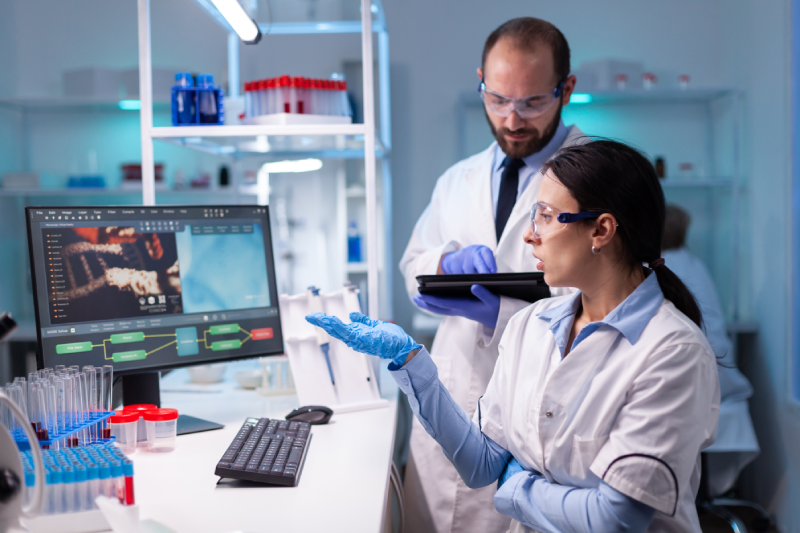
Cure Holiday’s Price Transparency and No Hidden Costs
Cure Holiday eliminates the ‘surgery price only’ trap often encountered in Europe. The price offered to the patient clearly covers the cost of cell multiplication, laboratory fees, accommodation, transfers, and all support services. This transparency allows the patient to plan their budget with confidence.
Pre-Treatment Preparation and Detailed Planning
Patient preparation before stem cell therapy is a critical stage that affects the success of the treatment. Cure Holiday consultants provide detailed instructions on medication use, dietary changes, and physical activity restrictions. All appointments and procedures are meticulously planned according to the patient’s travel calendar.
Success Stories from Cure Holiday Patients
Cure Holiday shares success stories and references from international patients who have previously undergone stem cell therapy. These real experiences help potential patients see the treatment process and results concretely, support their decision-making process, and increase confidence in the treatment.
Stem Cell Therapy and Psychological Support During the Recovery Period.
Stem cell therapy is a great source of hope for patients, especially when chronic diseases are involved, but it can also bring a psychological burden. Cure Holiday provides psychological support and continuous communication during the recovery period to keep patients motivated and help them cope with the difficulties they face.
How are Patients Followed Up in Their Home Countries After Treatment?
When the patient returns to their home country after treatment, the remote follow-up system organized by Cure Holiday comes into play. Patients regularly meet with their doctors via video conference (usually at 3, 6, and 12 months), have necessary laboratory tests done, and share the results with the team in Turkey. This uninterrupted follow-up ensures the long-term success of the treatment.
Steps to Contact Cure Holiday
The steps to start your stem cell therapy journey in Turkey are simple:
- Preliminary Application: Submit your medical information and treatment request via the Cure Holiday website.
- Free Consultation: Your personal consultant schedules a complimentary preliminary evaluation appointment for you.
- Treatment Plan Approval: Meet with the surgeon/specialist doctor and approve the most suitable treatment plan and transparent package.
- Travel and Treatment: Cure Holiday handles all logistics, while you only focus on the treatment.
Investing in Health in Turkey: Step into the Future with Cure Holiday
Stem cell therapy is one of the most important investments you can make in your health. It is possible to combine this investment with Turkey’s expertise, state-of-the-art technology, and economic advantages, unlike the exorbitant prices in Europe. Cure Holiday is your most reliable guide on this journey of transformation, which is both high-quality and affordable.
